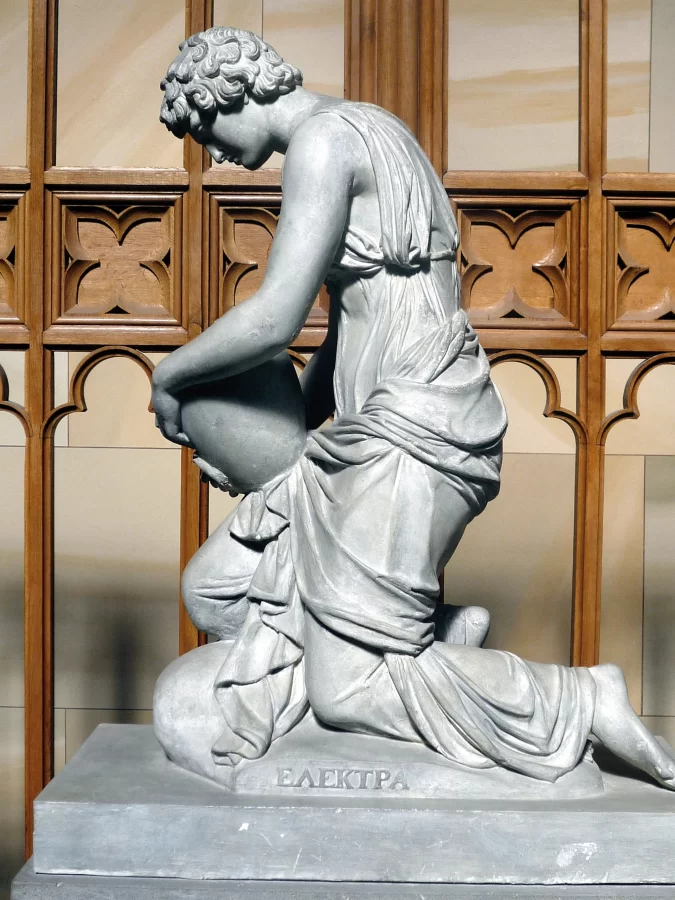This is a repeating event- Event 1 / 427 May 2025 5:00 pm
Electra: a character study
Event Details
“Elektra”, a sculpture by Christian Friedrich Tieck, 1824,
Event Details

“Elektra”, a sculpture by Christian Friedrich Tieck, 1824,
photograph by Manfred Brückels, Creative Commons Attribution-Share Alike 3.0
In Greek mythology the House of Atreus is a rich source of drama: all three of the great tragedians wrote about the revenge of Orestes on his mother following the Trojan War. Aeschylus’s Libation Bearers focuses primarily on Orestes, but Electra is also key, and in both Euripides’ and Sophocles’ eponymous works Electra takes centre stage. Together these plays give us a wonderful opportunity to compare three representations of a single character.
The study will start with detailed study of Sophocles’ Electra, probably the last of the plays to be written and performed. This version of Electra – written shortly before Sophocles’ death in his nineties – offers perhaps the most complex characterisation and has provoked polarised opinions with one critic calling it ‘a combination of matricide and good spirits’!
We will then go on to explore sections of Aeschylus’s Libation Bearers and Euripides’ Electra, to compare the three versions of the grieving daughter and consider the ongoing relevance of this iconic character.
Our primary text will be The Greek Plays: Sixteen Plays by Aeschylus, Sophocles and Euripides, edited by Mary Lefkowitz and James Romm (ISBN 978-0812983098) which contains all three of the plays we will study, but all translations are welcome.
JOINING DETAILS:
- Four two-hour meetings on Zoom led by Susanna Taggart
- Tuesdays, 5.00-7.00 pm (UK), 20 May – 10 June
- £120 for four meetings to include opening notes and resources
Organizer
Time
20 May 2025 5:00 pm - 7:00 pm(GMT+01:00)
Location
VIRTUAL - ON ZOOM
